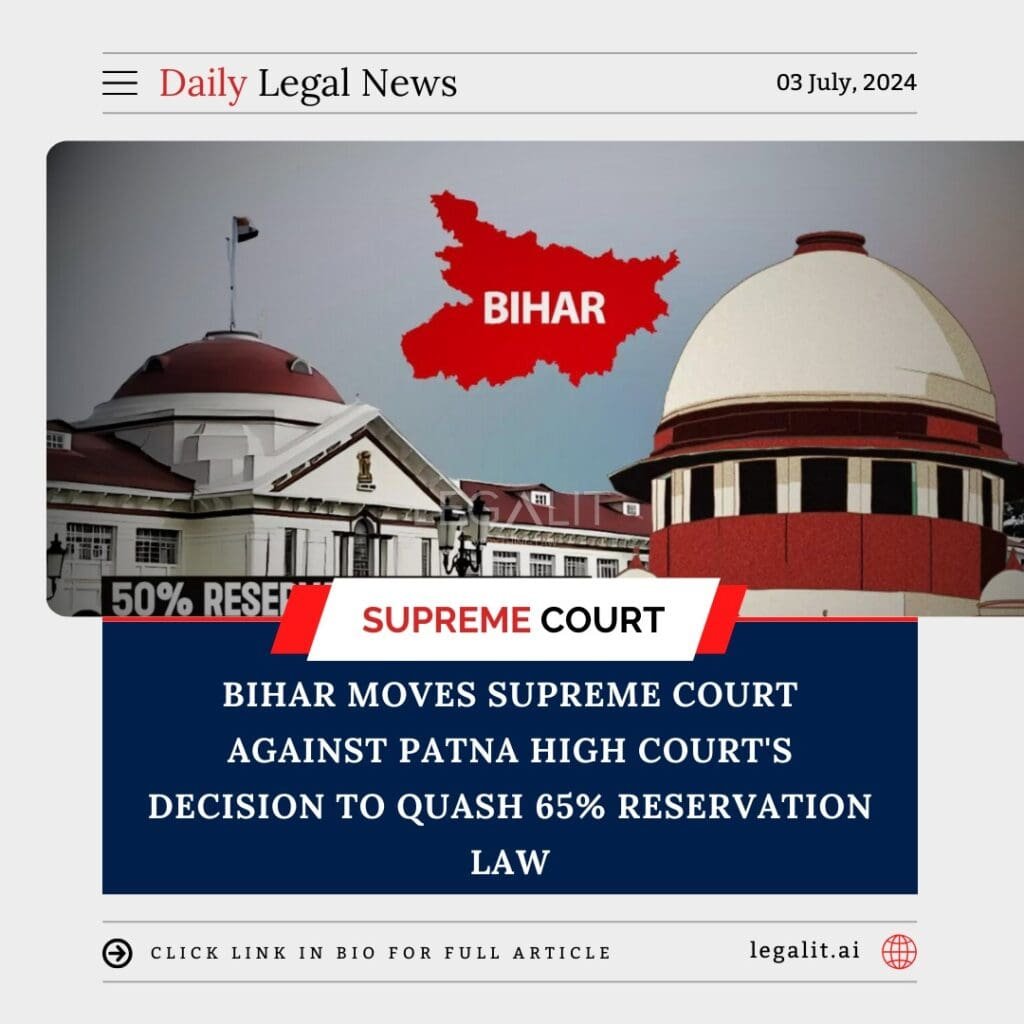
The Bihar government has approached the Supreme Court, challenging the Patna High Court’s decision to strike down the state’s law that increased reservations to 65% for Scheduled Castes (SC), Scheduled Tribes (ST), Other Backward Classes (OBC), and Extremely Backward Classes (EBC). The move follows a significant legal setback for the state government, which had passed the Bihar Reservation Amendment Bill in 2023.
Background
The Patna High Court had invalidated the Bihar Reservation Amendment Act, 2023, which sought to raise reservations from 50% to 65% in government jobs and educational institutions. This decision was based on the grounds that the amendment violated Articles 14, 15, and 16 of the Indian Constitution, which ensure equality before the law and non-discrimination.
Key Points of the High Court’s Ruling
- Constitutional Limits: The court emphasized the Supreme Court’s established cap of 50% on reservations, as set out in the landmark Indra Sawhney case. It ruled that any increase beyond this limit must be justified by extraordinary circumstances, which were not evident in Bihar’s case.
- Violation of Equality Clause: The High Court found that the increase in reservation was based solely on the proportion of the population, which contravened the principle of providing reservations based on inadequate representation rather than mere population proportion.
- Lack of Rigorous Analysis: The decision highlighted that the state did not conduct a comprehensive study or analysis to justify the necessity of increasing the reservation beyond the constitutional limit. The court noted that such legislative changes should be backed by thorough research and data .
Bihar Government’s Argument
The Bihar government, led by Chief Minister Nitish Kumar, contends that the increased reservation is essential for ensuring social justice and equitable representation of backward classes in public employment and education. The state argues that the amendments were a response to a caste-based survey indicating significant underrepresentation of these communities.
Implications
- Legal Precedents: The Supreme Court’s decision on this appeal will have far-reaching implications for reservation policies across India. It will address the contentious issue of balancing social justice with constitutional mandates on equality.
- Social Impact: The case highlights the ongoing struggle to balance affirmative action with meritocracy, a debate that continues to shape India’s socio-political landscape.
The Supreme Court’s response to Bihar’s appeal will be crucial in determining the future of reservation policies and the interpretation of constitutional limits on affirmative action.